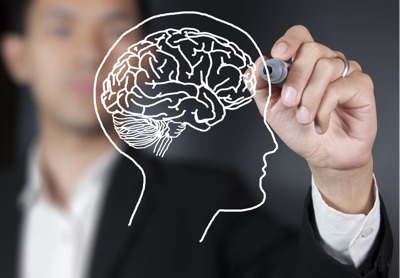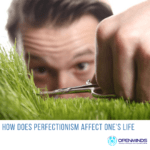“The medical revolution is at hand, and perhaps the most active rebels will be… those of us looking for a better way to wellness. As we evaluate our own desires, examine our beliefs, we will uncover the healing powers stored within our bodies. Many- from all over the globe- will walk beside us on this journey. Even Western practitioners, who once thought that the Western way was the only way, will join us as we discover an elegant route to wellness -a route that integrates the natural, the spiritual and the personal, with the technological advances of our modern world. Through Integrative Medicine we begin our journey together. This is the legacy we will leave for future generations”[i].
Important definitions
Integrative Medicine
This field in medicine deals with safely integrating mainstream Western Medical Practice with Complementary/Alternative Medicine (CAM), most often with philosophies of the Eastern Medicine, in the pursuit of holistic patient care[ii].
Complementary and Alternative Medicine (CAM)
This includes therapies for example traditional herbal supplements, specific diets, nutritional supplements, meditation, mindfulness, exercise, traditional spiritual healing practices, Yoga, Chinese Medicine, Ayurveda, Aromatherapy, Acupuncture, Astrology, Reiki, and Hypnotherapy.
Integrative Psychiatry
This will be the practice of integrating conventional Western psychiatric medication and CAM safely and appropriately to manage mental health conditions according to the latest research available, “in pursuit of holistic patient care”.
Holistic wellness
The word holistic was first used in the western world by a South African statesman and philosopher, Jan Christian Smuts in 1926. The word is derived from the Greek word holos, meaning whole. He believed that matter, life and mind all forms part of an active, creative process moving toward more and deeper wholeness.
In the health profession it is characterised by the treatment of the whole person, taking into account mental, spiritual and social factors, rather than just the physical symptoms of a disease. This is in fact how traditional healers in many different cultures have been practicing the healing profession for millennia.
Psychoneuroimmunology (Mind-Body Medicine)
This is the scientific field investigating the interactions between mind and body, the effect of psychological factors via the brain and the nervous system on the immune system[v]. More and more research is emerging to prove the effect of psychological issues like severe stress or depression, on a person’s physical body. It is a well-known fact that when one is under severe stress that your immune system is weakened and that one is more prone to develop infections at that stage[vi]. It is also now scientifically proven that depression is one of the major risk factors of serious cardiovascular diseases for example heart attacks and strokes.
And isn’t it interesting how the symptoms of flu mimic the symptoms of depression? When one has the flu, you become socially withdrawn, just want to stay in bed, feel low in mood, and have a poor appetite.
Psycho-Oncology
This is the field dealing with the relationship between psychological factors and both the development and progression of cancer. It also includes the psychological impact of cancer, or any other serious medical condition, on a person’s mental health.
Important questions
Are Psychiatric conditions a physical or psychological problem?
Psychiatric conditions for example Depression, Anxiety, Post Traumatic Stress disorder, Obsessive Compulsive Disorder, Bipolar disorder and Schizophrenia have been proven to be a physical problem of the brain. The brain is also an organ in the body, like any other organ: your lungs, heart, liver and stomach and can also get sick or damaged in a physical way.
It is however not always easy to understand it in that way, because a brain illness present in such a different way, by serious changes in thoughts, emotions and behaviours. This is why it may look like it’s “only” a psychological or spiritual problem, or a weakness in a person. Unfortunately it is not as straightforward.
Vice versa psychological issues can also trigger a physical illness, for example a brain and nervous system illness or an illness of another system in the body, as mentioned above.
Therefore one cannot separate the body and the mind/ brain from each other. They work closely together.
Research has proven with brain scans, chemical changes in the fluid of your brain (cerebrospinal fluid) and electrical changes on a person’s brain waves, that there are obvious physical changes associated with different psychiatric conditions. A good example is that of Post-Traumatic Stress Disorder (PTSD). With special brains scans one can see that certain areas in the brain are “shrunken” and doesn’t function the same as in someone without PTSD[x].
It is also proven that psychotherapy and counselling can change the structure and functioning of the brain in a good way, by forming new brain cells and connections in the brain[xi].
Is it safe to combine Western Psychiatric Medication with CAM?
Western Medicine is busy with ongoing scientific research in this field and has already has a good body of evidence for a number of Complementary and Alternative Medicine which is effective and safe in Psychiatry. With time we will know much more.
For example, recognised CAM therapies for Major Depression[xii]:
- Omega 3 Oil
- St John’s Wort
- Folic Acid
- SAM-e nutritional supplement
- Exercise
- Mindfulness
Specific diets
When is it not safe to combine Western Psychiatric Medication with CAM?
The best is to always check with a doctor first. Even if therapies are “natural” they can be very potent and can potentially cause harm and higher intake of “natural” supplements is not necessarily better.
Situations where it is unsafe to integrate conventional Western Medicine and CAM:
- Combining herbal supplements with conventional psychiatric medication. Most psychiatric medications are metabolised through the liver via what we call the P450 enzyme system. Herbal medicines are also metabolised through this system. Therefore herbs and psychiatric medication can work “against” each other, causing either the medication level to be too high or too low in your body. This will cause either toxicity or an inadequate effect of the medication or in some case severe liver toxicity[xv].
- Using CAM in a severe degree of a psychiatric condition. If a person for example has a severe form of depression or psychosis and feel suicidal or aggressive, they can potentially harm themselves or others and need to be managed urgently by a professional team. It is often then “too late” to use CAM for example a nutritional supplement or meditation alone at that stage.
Here in Dubai where the East meets the West, Dr Sravani Behara, as an Integrative Psychiatrist, can provide advice on how to safely integrate conventional Western Medicine and CAM for mental health issues. Although she has knowledge of most CAM therapies available, she is mainly trained as a Western Psychiatrist.



